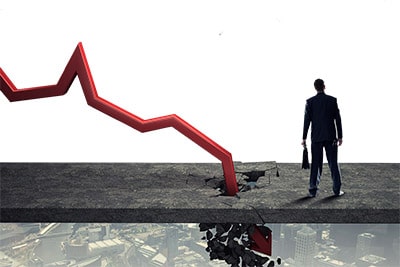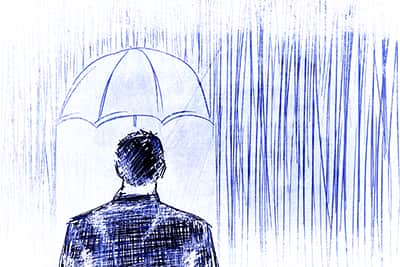A Closer look at Bankruptcy law in China post - 2021
 The Bankruptcy Law in China consists of 136 articles apply to any or all types of insolvent enterprises. That is whether it is state-owned, privately owned, or by the foreign investment enterprises and other financial institutions. China enacted the nationwide Enterprise Bankruptcy Law in 1986 it is only for the enterprise. It does not cover the bankruptcy of natural persons. The drafting of the Regulation is similar to the laws in jurisdictions with market economy of the United Kingdom, United States, Germany, Japan, Hong Kong and Taiwan. The Regulation aims in constructing a complete and modern bankruptcy system.
The Bankruptcy Law in China consists of 136 articles apply to any or all types of insolvent enterprises. That is whether it is state-owned, privately owned, or by the foreign investment enterprises and other financial institutions. China enacted the nationwide Enterprise Bankruptcy Law in 1986 it is only for the enterprise. It does not cover the bankruptcy of natural persons. The drafting of the Regulation is similar to the laws in jurisdictions with market economy of the United Kingdom, United States, Germany, Japan, Hong Kong and Taiwan. The Regulation aims in constructing a complete and modern bankruptcy system.
The Regulation of Shenzhen Special Economic Zone on Individual Bankruptcy is the first in China. It was enacted on 31 August 2020 and came into effect on 1 March 2021. The Criteria of individual bankruptcy is in accordance with Article 2 of the Regulation. It applies a natural person who resides in the Shenzhen Special Economic Zone, natural person who paid social insurance for three consecutive years, and one does not have sufficient assets to pay off all their debts or became insolvent due to business operation. If these criteria are satisfied a debtor shall undergo liquidation of their debts if the debtor. If a debtor has commenced personal bankruptcy proceedings inconsistent to the Regulation then their spouse can also file for personal bankruptcy. According to the article 9 of the Regulation, a creditor can also file for bankruptcy of a debtor. The article states that when a debtor is unable to pay its debts and the creditors who alone or jointly hold debts of more than RMB 500,000 against the debtor may apply to the people's court for bankruptcy of the debtor.
After the declaration of a debtor’s bankruptcy by the people’s court a three year Inspection Period is granted. This is mentioned in Article 95 of the Regulation. If there is any violation in conditions given by the people’s court during the inspection period, the Article 96 of the Regulation states such period may be extended by not more than two years.
Articles 23 and 86 of the Regulation restrict the debtor on the following during the inspection period. The debtor is restricted from the debtor’s consumption behaviours and career options during the said period. That is he cannot buy business-class flight tickets, they are not allowed to visit any hotels above three star hotels, nightclubs or golf courses. He cannot purchase real estates or motor vehicles. He cannot build a house and their kids are not allowed to continue their education in a private school with expensive tuition fees. The debtors cannot work in any listed companies, non-listed public companies or financial institutions as a director, supervisor or senior management personnel. During the Inspection period To safeguard the basic living and rights of the debtor and their dependents during the Inspection Period, asset exemption of up to RMB 200,000 in total to cover all the daily life, education and medical needs of the debtor and their dependents.
The Bankruptcy Affairs Administration Department regulates the administration of bankruptcy cases. The department is responsible for maintaining a public register of bankrupts and dealing with allocation of the assets of the bankrupts and with the custody, disposal, and valuation.
 According to Article 68 the Bankruptcy expenses and estate debts will be paid from the property of the debtor. These will be incurred after accepting bankruptcy petition in the People’s Court. Bankruptcy expenses means the expense incurred by the court in the bankruptcy case, the expenses arising out for the management, realization and distribution of property of the debtor and the expenses and remunerations for the trustee approved by the Bankruptcy Affairs Administration Department. Article 161 explains who is a trustee. Trustee is appointed by Bankruptcy Affairs Administration Department he is responsible for implementing various bankruptcy administration duties such as supervising the conduct of the debtor during the observation period and taking over the property of the debtor. The estate debts is defined as a debt arising from the request by the trustee, expense in the management of the business of another with respect to property of the debtor, debts from unjust enrichment, damages occurred to another person by the trustee’s performance of duty over the property of the debtor, the provision of financing for the reorganization of the debtor and the payment of remuneration for service and social insurance for the debtor’s
According to Article 68 the Bankruptcy expenses and estate debts will be paid from the property of the debtor. These will be incurred after accepting bankruptcy petition in the People’s Court. Bankruptcy expenses means the expense incurred by the court in the bankruptcy case, the expenses arising out for the management, realization and distribution of property of the debtor and the expenses and remunerations for the trustee approved by the Bankruptcy Affairs Administration Department. Article 161 explains who is a trustee. Trustee is appointed by Bankruptcy Affairs Administration Department he is responsible for implementing various bankruptcy administration duties such as supervising the conduct of the debtor during the observation period and taking over the property of the debtor. The estate debts is defined as a debt arising from the request by the trustee, expense in the management of the business of another with respect to property of the debtor, debts from unjust enrichment, damages occurred to another person by the trustee’s performance of duty over the property of the debtor, the provision of financing for the reorganization of the debtor and the payment of remuneration for service and social insurance for the debtor’s
Debt evasion is mentioned in regulation to prevent debtors from taking advantage of the Regulation to avoid their debt liabilities. The Article 14 provides for four circumstances where the people’s court can enter a ruling to deny acceptance of a bankruptcy petition or to dismiss the petition. If the debtor fails to comply with Article 2 of the Regulation, the petitioner can file the bankruptcy petition. If he removes property maliciously to evade debts, if the petitioner makes any false statement, if petitioner has an evidence to obstruct the bankruptcy proceedings, if the debtor was discharged from outstanding debts.
The Article 103 states that the creditor or other interested person can approach the people's court to revoke the ruling for discharging of outstanding debts when a creditor or any interested person comes into knowledge that the debtor is discharged from his outstanding debts by fraudulent means. Article 130 also empowers provisions to approach the people's court when a debtor fails to implement the reorganization plan or the debtor commits fraud for terminating the implementation of the reorganization plan and commence bankruptcy liquidation of the debtor. The people's court will enter a ruling to terminate the implementation of the reorganization plan and the reorganization trustee will continue as bankruptcy liquidation trustee.
The Article 167 empowers the people’s court to put off debt evasion behaviour. That is by reprimanding, summoning, issuing fine, detaining a debtor. The debtor criminally liable for committing certain violations including refusing to cooperate in investigation like not giving answers to the question asked or not submitting relevant information when asked or providing false information or altered information, intentionally concealing, removing, destroying, improperly disposing of property or improperly reducing the value of property and fabricating a debt or admitting an untrue debt.
 Conclusively, the new Regulation laid an important milestone in the development of the individual bankruptcy law in China. The introduction of the new Regulation poured out a hope in honest individuals in Shenzhen who are struggling with debt. Now, if they do not have ability to pay their debts can opt for liquidations, reorganisations or resettlements.
Conclusively, the new Regulation laid an important milestone in the development of the individual bankruptcy law in China. The introduction of the new Regulation poured out a hope in honest individuals in Shenzhen who are struggling with debt. Now, if they do not have ability to pay their debts can opt for liquidations, reorganisations or resettlements.
However, we have to wait and see whether the new law affect and accelerate a nationwide individual bankruptcy law in future.
 عربي
عربي
 English
English Русский
Русский 官话
官话 português
português
 Türk
Türk 










